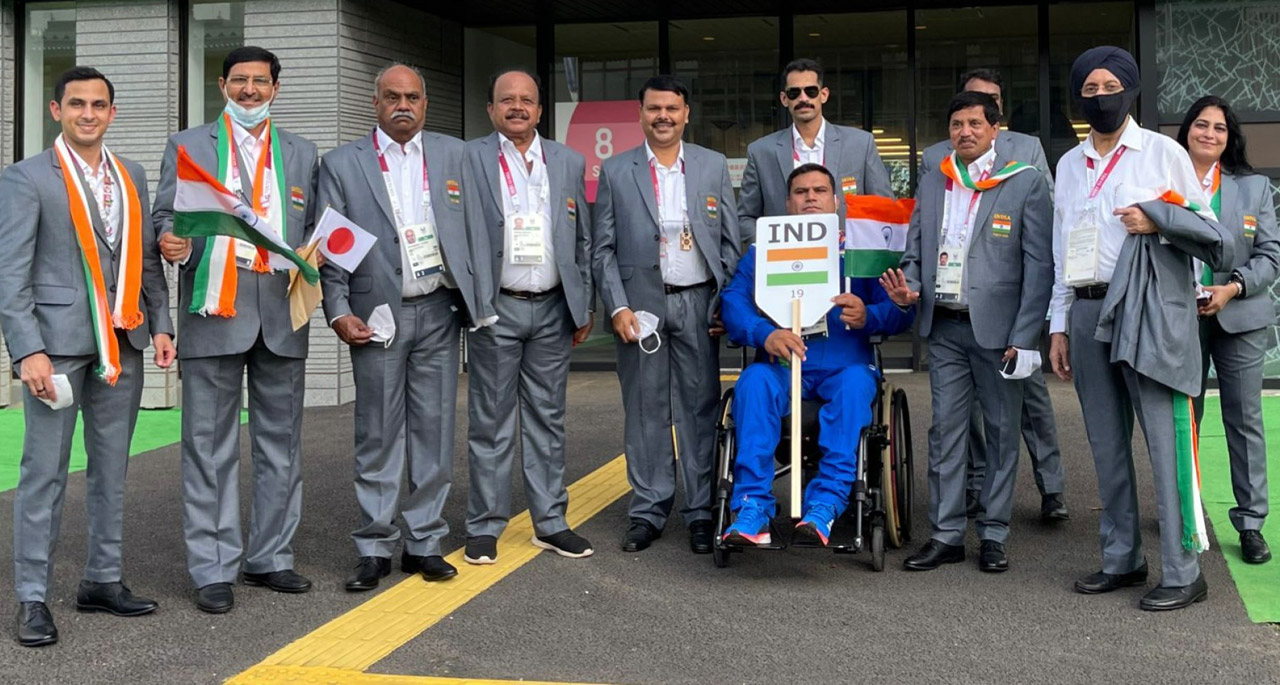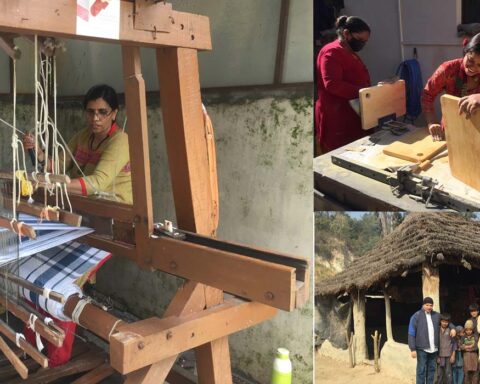Dreams do come true but when some achievements go beyond the realm of dreams, especially in the field of sport, the nation sits up and takes note. India won five gold, eight silver and six bronze medals in the recent Tokyo Paralympic Games, exceeding even the wildest of expectations.
For a country that had won a total of 12 medals in all earlier Paralympics dating back to 1968, the 19-medal haul in Tokyo was a phenomenal improvement.
There were maiden medals in archery (Harvinder Singh in men’s recurve), shooting (19-year-old Avani Lekhara in the women’s 10m air rifle SH1) and table tennis (Bhavina Patel in women’s singles Class 4) to add to those in athletics and badminton, which debuted in the Paralympic Games calendar.
There were multiple medals for shooters Lekhara and Singhraj Adhana while Devendra Jhajharia’s F46 silver in the javelin throw was his third Paralympic medal in 17 years. Suhas Yathiraj became the first IAS officer to win a Paralympic medal when he claimed the badminton men’s singles SL4 silver. Alongside, Indians set or equalled two world records, created three Paralympic records and two Asian records.
As the nation basks in this glut of achievement, let us also examine some of the reasons behind such success. Clearly, India has done a few things right for its athletes to be able to garner more medals in one edition than the 12 won in the entire history of the country’s participation in the Paralympics. If nothing else, the sustenance of such factors over time can ensure similar performances.
Concerted effort
As I see it, the coming together of stakeholders – the government, the Paralympic Committee of India (PCI) and other national sports federations (NSFs) that organise events for athletes with disabilities, as well as non-governmental organisations – is the single biggest factor. Instead of tugging in different directions, they made a concerted move to find a common path for India to forge ahead.
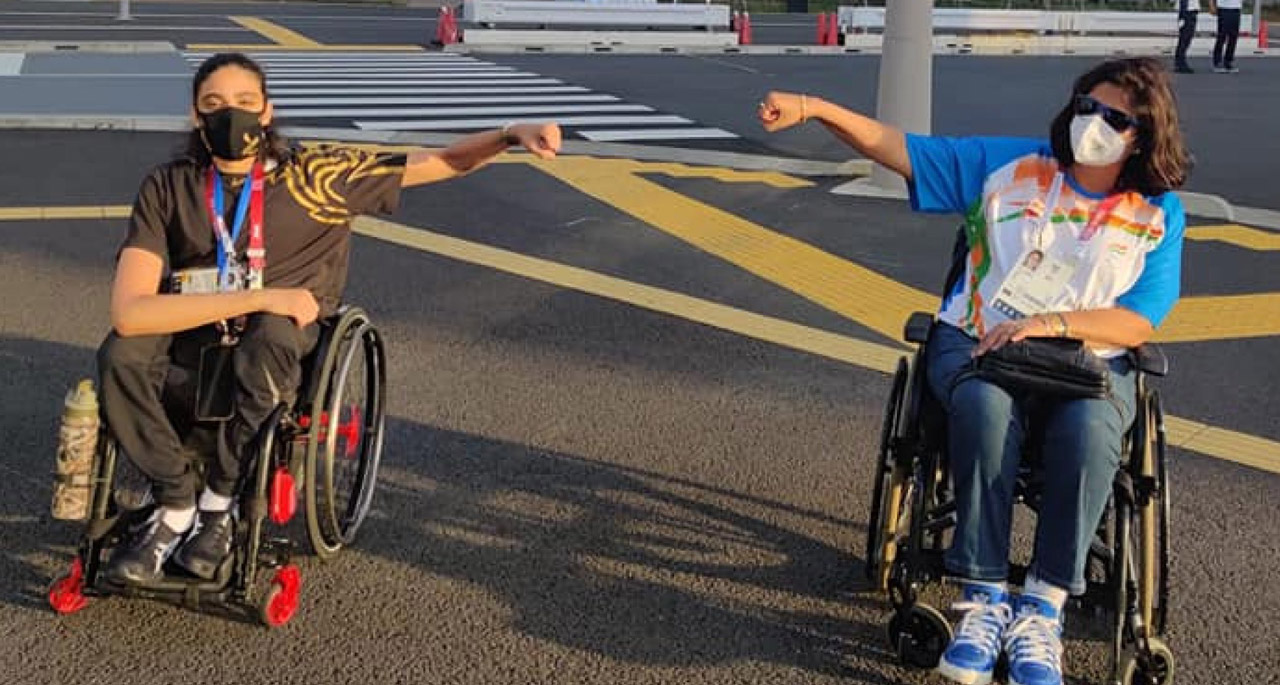
From athletes to coaches as well as bodies like the Sports Authority of India (SAI) and the PCI, there was a great sense of purpose that drove the campaign. Through lockdown and beyond, athletes could go about their preparation with little fuss or worry. And they reached Tokyo in good form despite inadequate international competition.
NGOs like Go Sports Foundation, Olympic Gold Quest and Shirdi Sai Baba Foundation supported athletes on their journey with their bit by plugging any gaps left in the overall scheme of things designed by the PCI, NSFs and SAI. When talent gets such unconditional backing from everyone, it gets the best chance to fulfil its potential.
Be that as it may, let us try and see if the euphoria can percolate to people at large beyond the momentary riot of celebration that India erupted in as the 19 medals took it into the top 25 in the Tokyo Paralympics table. Or will they forget the amazing efforts by the medal winners and others in their quest for more sporting entertainment (read international success)?
OVERCOMING HANDICAPS TO WIN GLORY FOR COUNTRY AND SELF
The Shirdi Sai Baba Foundation (SSBF) was among a number of organisations and non-governmental organisations that sponsored and supported athletes who were part of India’s record medal tally of 19 at the Tokyo Paralympic Games.
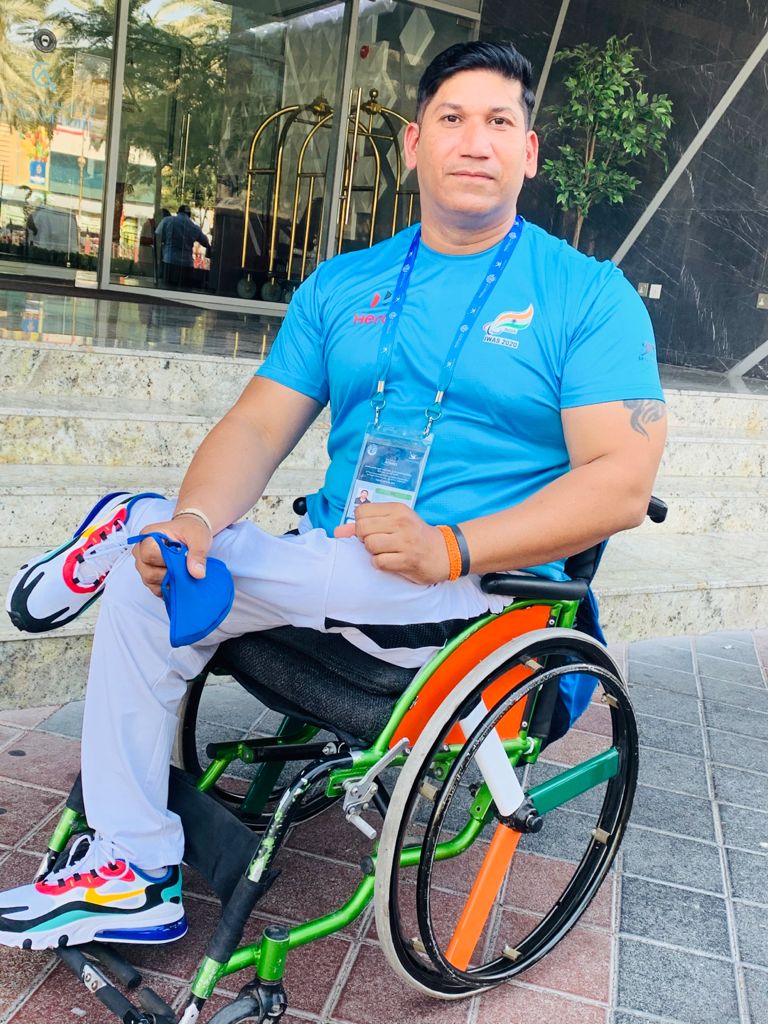 Prominent among them were Neeraj Yadav, Yogesh Kathuniya and Sundar Singh Gurjar, each of whom had a few words on his achievements.
Prominent among them were Neeraj Yadav, Yogesh Kathuniya and Sundar Singh Gurjar, each of whom had a few words on his achievements.
Neeraj Yadav, gold medal Asian Paralympics men’s Javelin Throw F55 event: “I used to consider myself a weaker person. I used to be scared. But sports boosted up my confidence and motivated me. Now when I come to the ground, I do not consider myself a person with an impairment. I always feel that I can achieve what I have dreamt of.
“My wife is my strongest motivator. My family was not in a position to support me. I was facing a financial crisis. After I married, I decided to quit the sport. My only aim was to find a job to provide a good life for my family. But my wife kept on convincing me why I needed to go back and compete. She was also ready to adjust. And she was right as my heart was always there.” (paralympic.org).
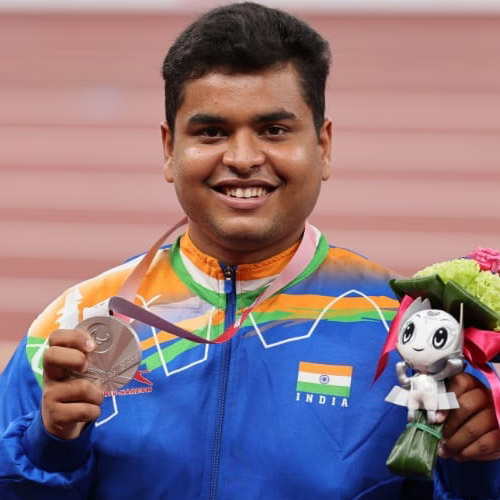
Yogesh Kathuniya, silver medal Tokyo Paralympics men’s discus throw F56 event: ‘It’s wonderful. Winning silver has given me more motivation to win gold in Paris 2024. It was very difficult to prepare in the last 18 months before the Tokyo Games. Every stadium remained closed for six months due to the lockdown. When I started going to the stadium I had to practise on my own. I didn’t have a coach then and I am still practising without a coach. It is wonderful that I was able to win the silver medal even without a coach.”
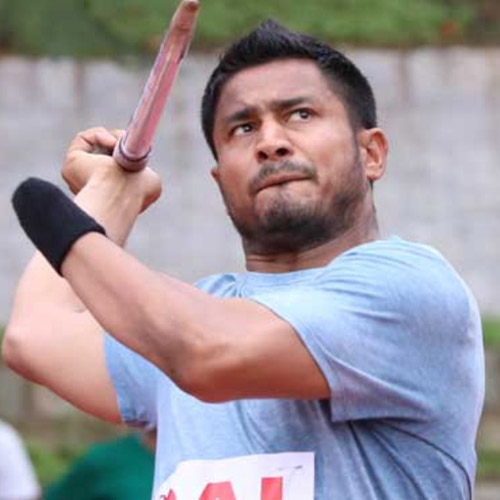
Sundar Singh Gurjar, bronze medal, Tokyo Paralympics javelin F46 event and 2017 London World Championships winner: “I used to play sports since 2009. Initially, I used to do shot put and I had a medal in shot put in nationals. I did shot put for and-a-half years and after that, my coach, Mahavir Saini, told me, If you have to shine in your career you have to leave shot put and start javelin. He might have seen some talent in me and he started training me. From there till now, coach Saab has supported me a lot.”
As far as a competitive sport is concerned, there should be little room for complaints of nepotism, favouritism and regionalism. The administrators in charge owe it to the athletes to keep sport clean, transparent, and fair by making policy public after taking the viewpoints of all stakeholders into account.
Key question
The other – and larger – question is if this can change society’s attitudes and perceptions against persons with disabilities. According to the 2011 Census of India, 2.21 percent of the population is disabled. Given that the world average is around 15 percent, some doubts creep in whether the families accurately report disabilities to census officials. If these doubts have their basis in facts, it indicates a primary issue in the country.
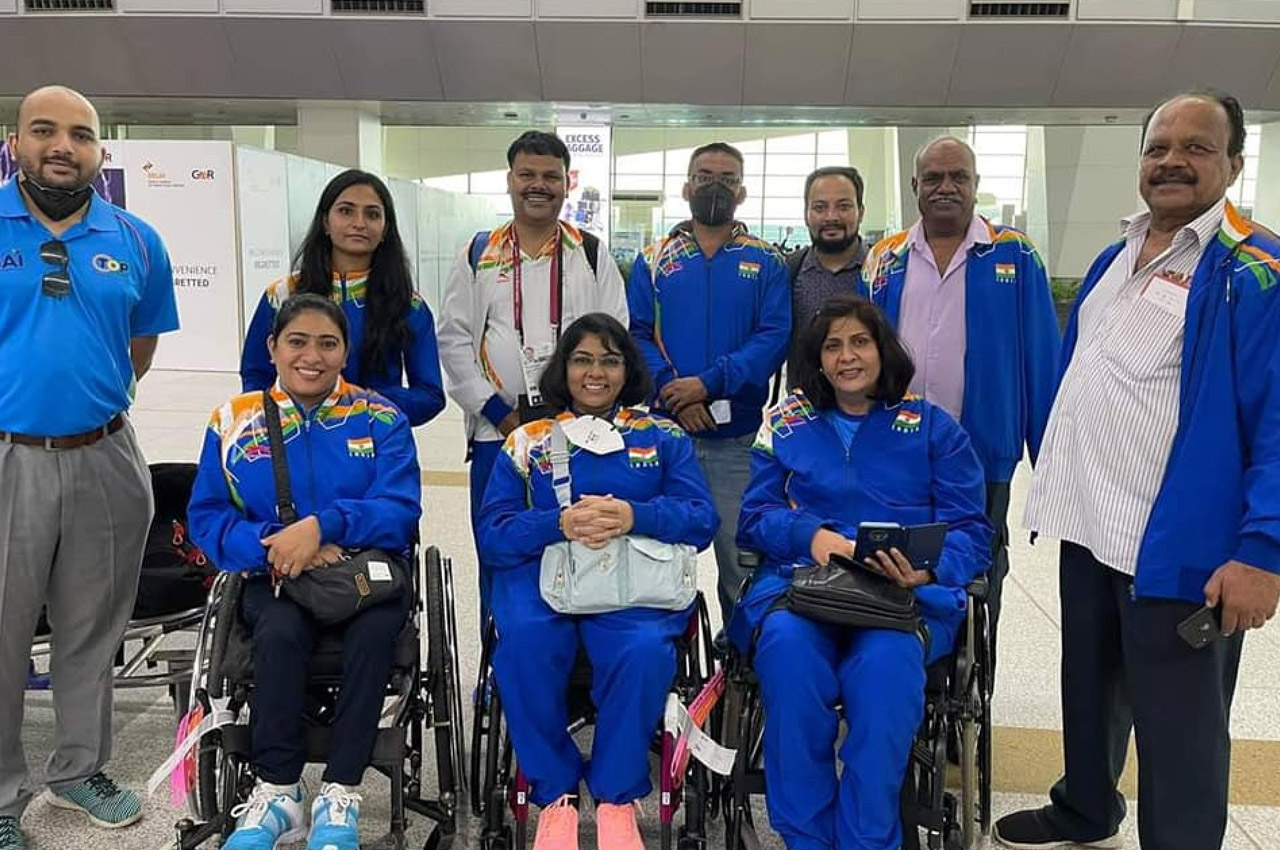
The Constitution of India ensures equality, freedom, justice and dignity of all individuals, including persons with disabilities, and mandates an inclusive society for all. Therefore, policymakers have always sought to be proactive in addressing the needs of people in disadvantaged situations, including those with disability, and providing them equal opportunities in every sphere of development.
Yet, there is no denying that each day there are instances of persons with disabilities facing discrimination and barriers that restrict them from participating in society on an equal basis. And it calls for evidence-based planning, proper implementation and monitoring to reduce, if not eliminate, such instances.
If India’s unprecedented success in the Paralympics can lead to society showing greater acceptance of persons with disabilities, it will have made a major contribution to social change. And that will be the greatest achievement sport can have, ushering in crucial mindset shifts in the larger society.
Indeed, India’s para-athletes have done their bit to shine a light on how they overcame societal barriers, which perhaps challenged them more than their own physical disabilities. It is time for society to respond with grace and dignity, finding a mature, accepting and encouraging manner with which to embrace persons with disabilities.
Sport is a high-profile form of humankind’s quest for excellence. And it places the successful athletes on a pedestal, bringing recognition, fame, awards, and financial reward, as well as employment. In other words, sport offers a fast-track mechanism to social acceptance and financial security.
Little change
There is no doubt that sport has been a means of social advancement for many individuals from lower socio-economic groups, but the keyword here is individuals. It has been a fervent aspiration that sport usher in social change, but the harsh truth is that little has changed on the ground.
The other – and larger – question is if this can change society’s attitudes and perceptions against persons with disabilities.
If it is of any solace, such a problem is not unique to India. In other parts of the world too, changing society to become more inclusive is an uphill task. The ground realities are harsh and daunting.
Ghada Shouaa, till date Syria’s only Olympic champion, laments that not many Arab women competed in the Tokyo Olympics. “The lack of Arab women in the Olympics was a tragedy, and the reason is because the new generation is watching what happened to us. They are scared to face the same ignorance, disrespect, humiliation and bullying,” she says.
Arab nations were represented by 14 female athletes at Tokyo 2020, and they won four medals, including a gold and a silver. Shouaa insists that the medal winners are exceptions who will disappear from memory like many before. She does not see a promising future for the sport in the region if Arab women continue to be marginalised and denied the same rights as men.
This evidences that social change is not directly proportional to sporting achievement. Yet, as the wise emphasise, it is folly to fear failure; one must never be afraid of trying. No matter what happens elsewhere, India must try and evolve as a society on the back of these Paralympic Games’ success.
There are other examples of non-acceptance and, even, discrimination. Racism, for instance, is an evil that persists in many societies despite the success of athletes from the underprivileged classes. If anything, some of them lift themselves from gloomy situations through sport but very little may have changed in wider society.
In the Indian Journal of Physical Medicine & Rehabilitation (April-June 2020), Monika Saini of the Department of Social Sciences, National Institute of Health and Family Welfare, and Anup K. Kapoor, Department of Anthropology, University of Delhi, offered some thoughts in their article, “Perception, Attitude, and Behaviour toward Persons with Disabilities in India”:
“In India, a person is more disabled because of societal perceptions and behaviour than his or her physical or mental disability. It is the society at large which carves out the stereotypes and negative attitude toward disability and restricts the meaningful participation of the persons with disabilities from their respective communities. Social discrimination, exclusion, and economic dependency make persons with disabilities more vulnerable and pitiable.”
Outcast
Indeed, a quick recall of Indian para athletes’ backstories will reveal that most of them have been made to feel like rejects or outcasts by people around them. And some, like high jumper Sharad Kumar, have spoken about still feeling the impact of being bullied in their younger days. It would be a real recognition if, thanks to the 19-medal show in Tokyo, India is convinced that this must end.
Yet, as Sharad Kumar points out, each time people speak of para-athletes as inspirations because they have overcome physical limitations, they are focusing on them being persons with disabilities. How can this be seen as inclusive? How can this promote the removal of social barriers? Instead, it only reinforces the divide in society.
“Do commercial products get para-athletes to endorse them?” asks Sharad Kumar. “Isn’t that an indication of civil society’s discrimination against athletes with disabilities? It will take a long time before we eliminate such distinction. The support for our preparation for the Paralympic Games has undergone a sea change in the past few years but social change is still some distance away. In any case, para-athletes cannot claim to be catalysts for such change.”
“Under such circumstances, we need to take some firm steps that will promote social change and will empower disabled people,” Saini and Kapoor wrote. “One of the most crucial steps to develop a positive attitude toward persons with disabilities is to abolish the closet and secretive mentality of society by sensitising and empathising with the persons without any kind of disability. The creation of an inclusive environment and culture of concern will nurture the confidence and self-esteem of persons with disabilities.
“In India, a person is more disabled because of societal perceptions and behaviour than his or her physical or mental disability.”
“The contextual realities of persons with disabilities should also be considered while framing effective policies. Lastly, we all should acknowledge that persons with disabilities are also an integral part of human diversity and are equally entitled to get respect from all of us.”
Then again, it must be remembered that this can come about only if everyone will change. Instead of it being imposed by government policy, rules and regulations, the transformation can be wider and will have a longer-lasting impact if the people at large spark it themselves. This is not a utopian vision but something perfectly achievable if the Paralympians go beyond sport.
They can lead social change by being influencers and advocates. But for that, there must be a raging desire among some of these athletes to be leaders. And that calls for them to first clear any doubts they have in their own minds about their own ability to spark the thought process that can lead to a greater acceptance of persons with disabilities in society.
Difficult step
“We must first come to terms with our identity as athletes with disabilities,” says Sharad Kumar. “Most of us try and hide those with prosthetics. It took me a long time to accept that I am an athlete with a disability. After the 2017 World Championships, I realised I was better off accepting that I would always be a Paralympian and not an Olympian.
“For example, in India, I would think several times before being seen in a pair of shorts, lest people see my polio-afflicted leg. But in the Games Village in Tokyo, I did not hesitate to wear a pair of shorts. It was a bubble of our own and we were able to be ourselves without being judged.” It is a telling indication of how tough it is for an athlete to transform his own mindset.
Yet, while India has a challenging mountain to climb, there is discernible change. A cab driver who was ferrying 2016 Rio Paralympic Games medallist and Paralympic Federation of India President Deepa Malik from New Delhi airport recognised her and congratulated the Indian team for its Tokyo success. With similar nudges from all stakeholders, social change could very well be realised before long.

